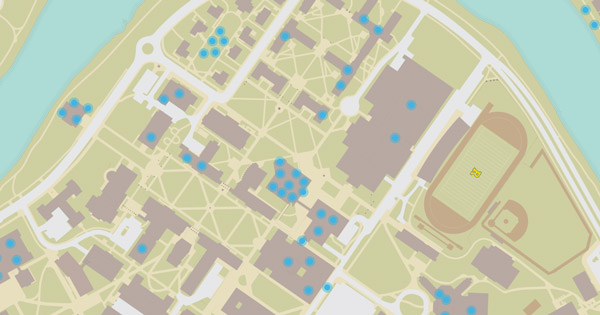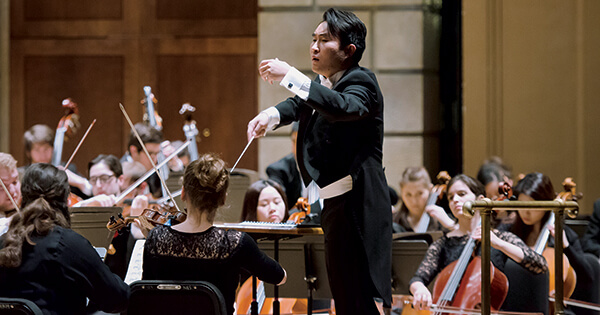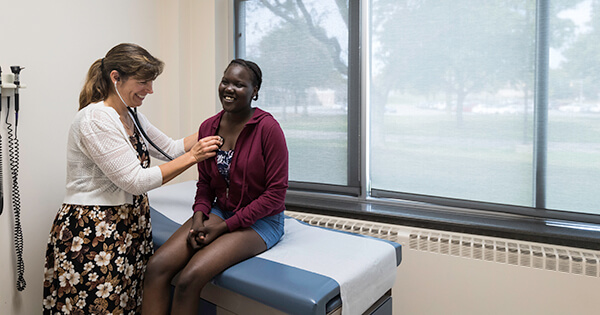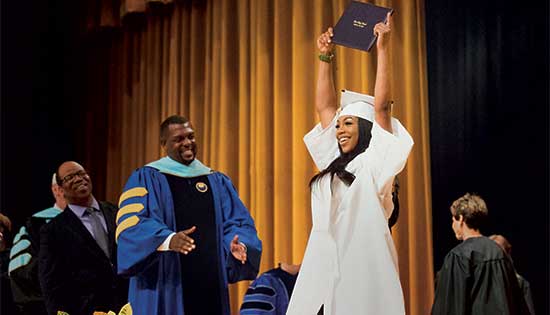Visiting students apply computational tools
Visiting students apply computational tools to music, mind
The University of Rochester will combine its strengths in machine learning, music theory, audio and music engineering, and cognitive science this summer to help students from other campuses explore such questions as:
- How can a computer learn to read an ancient musical score?
- What can computational tools tell us about the history of popular music?
- Can a computer system teach a person to become a better public speaker?
“It’s an interesting line of research that is uniquely suited for Rochester,” says Henry Kautz, the Robin and Tim Wentworth Director of the Goergen Institute for Data Science. “We hope it will be a good way to help attract diverse students into computer science, and to help them see that it’s not just about writing video games.”
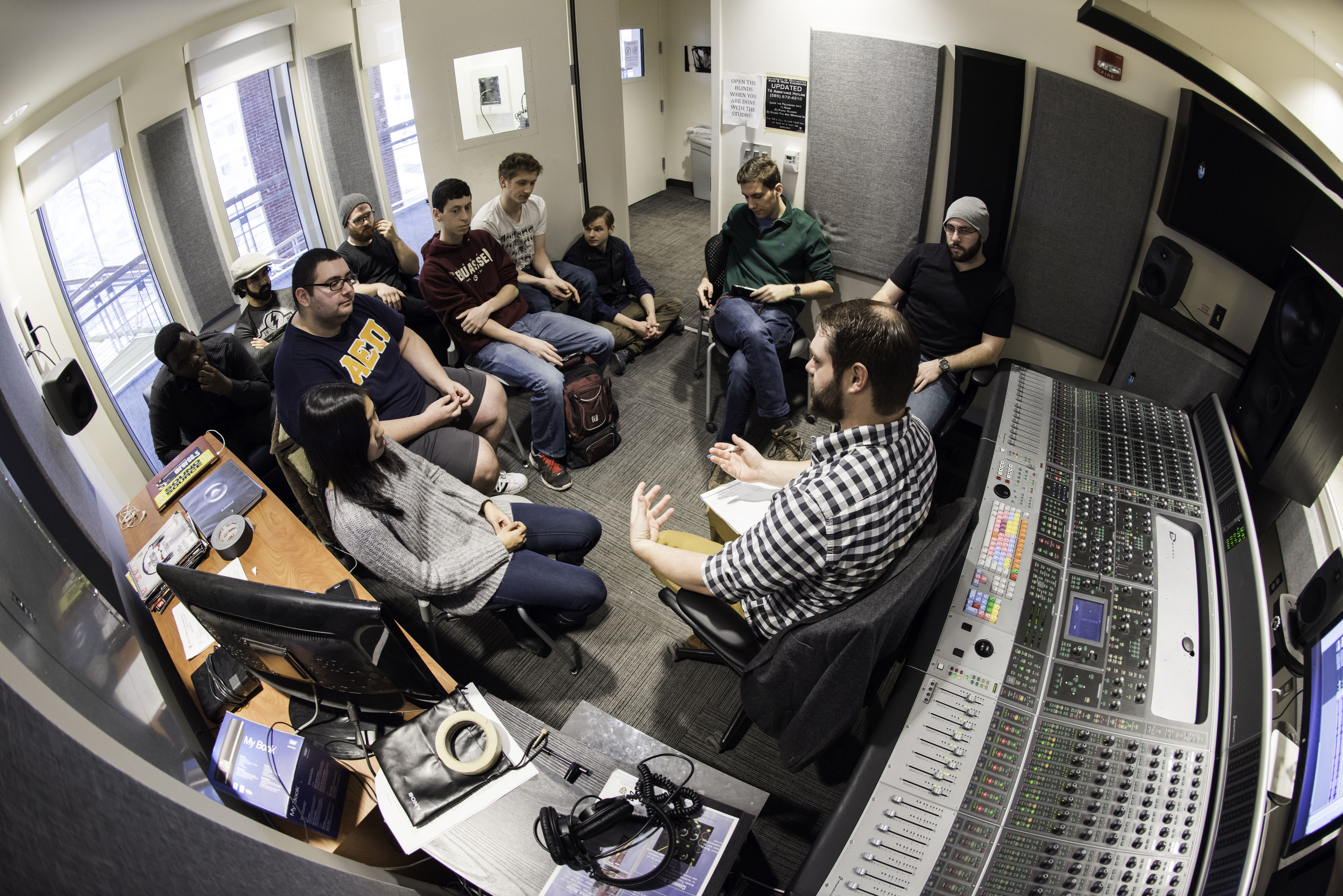
Roessner listens to and discusses student projects in the studio’s control room. // Audio and Music Engineering lecturer and program coordinator (ECE Ph.D. student), Stephen Roessner, leads University of Rochester students in AME 192 – Critical Listening and Audio Production, in the recording studio in Rettner Hall February 3, 2016. // photo by J. Adam Fenster / University of Rochester
Ten River Campus and Eastman School of Music faculty members—representing brain and cognitive sciences, computer science, electrical and computer engineering, English, musicology, and music theory—will mentor the students, who will work in teams of two on research projects.
In addition, four graduate students will work closely with the students to help track their progress, answer questions, and help them become fully integrated into the program.
The research projects will include:
- Deciphering ancient musical scores using convolutional neural networks, with Gregory Heyworth, associate professor of English; Daniel Gildea, professor of computer science; and David Temperley, professor of music theory;
- Mining the history of popular music from recordings and Wikipedia using batch audio processing algorithms and genomic signaling processes, with Mark Bocko, professor and chair of electrical and computer engineering; Kautz; and Darren Mueller, assistant professor of musicology;
- Web-based interactive music transcription using state-of-the-art music transcription algorithms, with Zhiyao Duan, assistant professor of electrical and computer science, and Temperley;
- The prosody of effective pubic speaking, involving the perception and computation of musicality in speech, with Ehsan Hoque, assistant professor of computer science; Chigusa Kurumada, assistant professor of brain and cognitive sciences; and Elizabeth Marvin, professor of music cognition;
- Reconstruction of live performances using algorithms to link audio, video, and the emotional experience of the audience, with Chenliang Xu, assistant professor of computer science; Jiebo Luo, associate professor of computer science; Hoque; and Duan.
The program will be based in Wegmans Hall, which is nearing completion as the new home for the Goergen Institute. Students working in labs elsewhere on campus will convene at Wegmans Hall for shared events.
The University’s Kearns Center for Leadership and Diversity in Arts, Sciences & Engineering will offer the students workshops on applying for graduate school, Graduate Record Exam preparation, teamwork and time management, and resume writing and interviewing skills, which will also be offered to other undergraduates doing research on campus this summer.
The Hajim School of Engineering and Applied Sciences, for example, is hosting another new REU this summer, for 12 students and focusing on the theme “Advancing Human Health: From Nano to Network.” This is in addition to ongoing REU programs offered by the Departments of Chemistry and Physics, and two other University summer research programs: The Xerox Engineering Research Fellows program for rising juniors and seniors in the Hajim School, and the McNair Scholars Program, aimed at increasing the numbers of low-income, first-generation, and underrepresented minority students who pursue doctoral degrees.
The 50 or more students in this summer “scholarship community” will attend weekly lunch colloquiums led by graduate students, postdoctoral fellows, and faculty members, and will showcase their projects at a concluding Research Symposium.
Wendi Heinzelman, dean of the Hajim School, says she’s excited about the opportunity the summer programs present to create a “diverse and dynamic student culture that will foster networking, mentoring, and social interactions among the University of Rochester students and the REU students as well as between the students and faculty. This will really enhance the summer experience for all involved.”
—Bob Marcotte, March 2017



